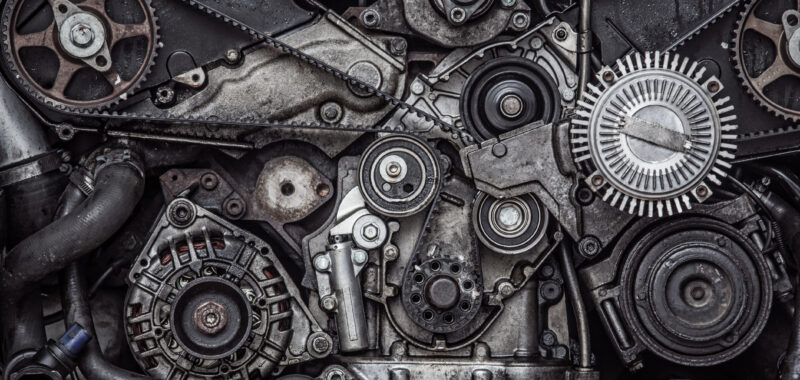One thing is clear after a wild week of President Donald Trump’s tariff roulette.
Nobody knows where the market is going in the short term, and the decisions of one person are moving trillions of dollars in market value. It’s an incredibly difficult environment to invest in.
Even after the 90-day pause, the uncertainty surrounding trade policy and the global economy remains. What will happen when the 90-day pause is over? Will China and the U.S., the world’s two biggest economies, remain in an all-out trade war? Can businesses confidently invest and hire in such a volatile environment? We don’t know the answers to those questions.
At times like these, one of the best choices investors can make is to put their money into safe stocks that can do well no matter what happens with tariffs and the global economy. One of the best candidates out there is AutoZone (AZO 1.17%), the aftermarket auto parts retailer that has trounced the market over its history, outperforming it by an even wider margin in bear markets.
AZO data by YCharts.
What’s more impressive about AutoZone is that it has generated superior returns in virtually every kind of market environment, and that it tends to be unbothered by disruptions like Trump’s tariffs. In one sign of that resilience, on April 3, the first day of the drop after Trump announced the tariffs, AutoZone stock gained 0.4%, though it later slipped in sympathy with the broader market pullback.

Image source: Getty Images.
Why AutoZone is an all-weather stock
AutoZone has two primary advantages working for it in challenging times. First, it operates in a countercyclical business. Demand for aftermarket auto parts tends to increase in challenging times as people forego or delay purchasing a new car. Since most spending on auto parts is necessary to keep a car operating, AutoZone benefits as car owners spend on repairs instead of buying new cars. That’s why its comparable sales typically accelerate during recessions.
The other advantage the company has that has helped it outperform peers like Advance Auto Parts and Napa parent Genuine Parts Company is its strong business operations and execution.
It now has more than 7,000 stores, with 6,000 locations across the U.S., and locations in Mexico and Brazil. It primarily serves the DIY channel, with 80% of its sales coming from walk-in customers, while the remaining 20% comes from sales to repair shops and other professional businesses.
It also carries a wide range of products, as most of its stores have 20,000 to 25,000 SKUs, and it uses a hub-and-spoke model. Hub stores carry 40,000 to 50,000 SKUs, and mega-hub stores carry 80,000 to 110,000 SKUs. That model has worked well, as the hub stores can reinforce the smaller ones as needed.
AutoZone benefits from its proprietary systems, including an electronic catalog and point-of-sale that help with things like customer service, inventory management, merchandising, and product returns.
Superior operations and the countercyclical nature of the auto parts industry should continue to make AutoZone resilient in economic downturns.
Management has also driven the stock’s outperformance through consistent share buybacks, reducing shares outstanding by about 50% over the last 10 years.
AutoZone’s tariff plan
Like most retailers, AutoZone is exposed to tariffs, and many of the products it sells come from outside the U.S.
However, management is confident that it can handle tariffs. In the recent earnings call in March, it said that it intends to maintain its margin profile after tariffs, meaning that it will pass on costs if needed. Because most of the products the company sells aren’t discretionary, it can pass along those costs. As CFO Jamere Jackson put it: “The lion’s share of our business is relatively inelastic.”
The tariff situation remains highly fluid even after the 90-day pause announcement, but based on its track record, operational success, and countercyclical business, AutoZone stock looks well-positioned for growth no matter what happens with tariffs. In a rocky market, it’s a rock-solid buy.

